11 Sandwich Shop Red Flags That Should Stop You in Your Tracks
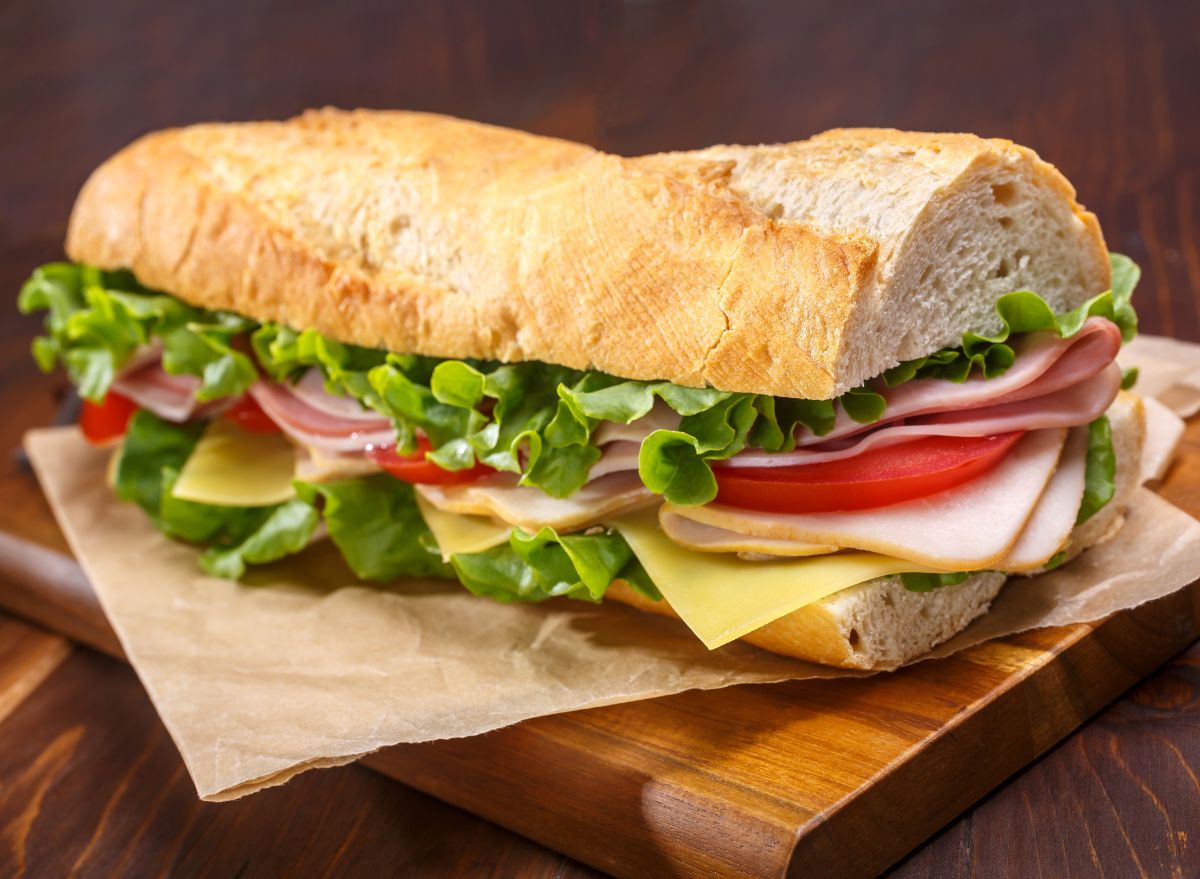
Sub shops. Delis. Sandwich joints. According to the USDA, on any given day, 47% of Americans eat a meal between bread! Whatever you call them, a takeaway shop that makes sandwiches is a mainstay of our culture. You might stop during your workday to grab lunch, get a big sandwich to split after a hike or trip to the beach, or grab a hot sammie on your way home for an easy dinner. But how can you tell if the shop you're going to will deliver?
Of course, not all sandwiches are created equal. When looking for a great sandwich, you want fresh ingredients, house-baked bread, and lots of tasty toppings. We spoke with chefs, bakers, and shop owners about what they look for in a deli, and shared the biggest red flags that indicate a sandwich shop or deli is a skip.
The menu is really long

There's only so much that a sandwich shop can do really well, say Jon and Hannah Young, owners and bakers at The Flour Shop in Connecticut. "When a menu is too long and varied it's hard to expect that everything is being made the best it can be," they told us. "A well-curated menu on the smaller side is a good sign that the sandwiches were thoughtfully created and have been executed many, many times and those are good indicators that you'll be getting a quality sandwich."
Kevin Ronald, chef and founder at Prepared Cooks, agrees, "An extensive menu with unreasonable combinations is a sign to think twice before placing an order. Variety only looks good if every item has a top-notch taste. And experimenting with sandwiches has never been appreciated. Classic combinations always take the forefront."
It's not busy
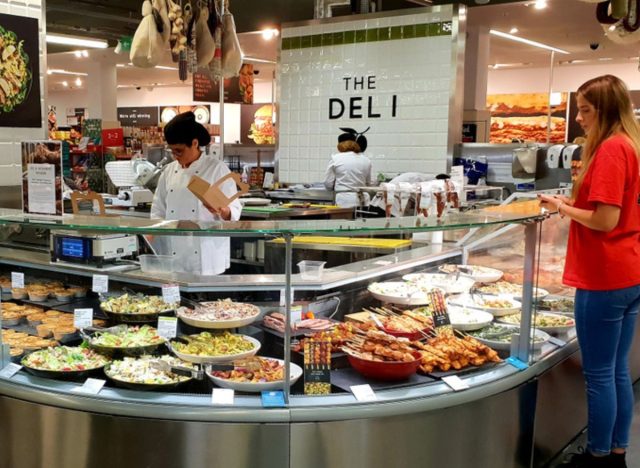
This is true of almost every restaurant, especially at peak hours, so consider yourself warned, the Youngs say. Also, if the staff seems happy, you're probably going to get a good sandwich.
"People will always find the hidden gems big and small, and if they're willing to wait in line then you can be sure they've found something special," says the Flour Shop team. "There are many other signs of course, creativity of the menu, fresh and local ingredients, happy and friendly staff all usually point to a great spot."
The bread isn't fresh baked
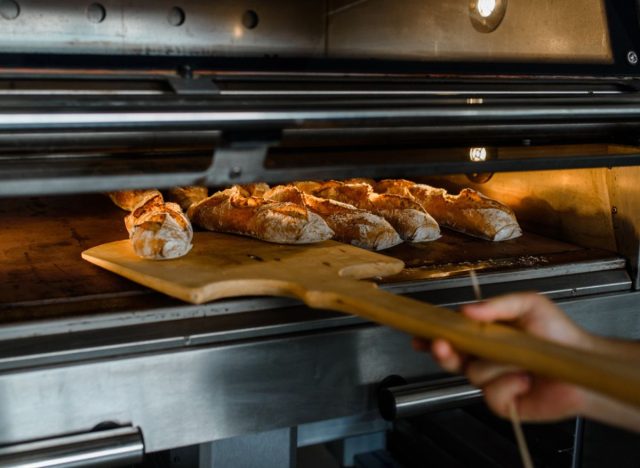
This should be a no-brainer, says Josh Garcia, VP at Miracle Mile Deli in Arizona. "Fresh bread. You can't have a great sandwich without awesome bread. Do your research online and find out what bread choices you have as a customer," explains Garcia. "If you feel so inclined, call the restaurant and ask where they get their bread from and ask how often it's delivered or made in-house."
The sandwiches aren't stacked
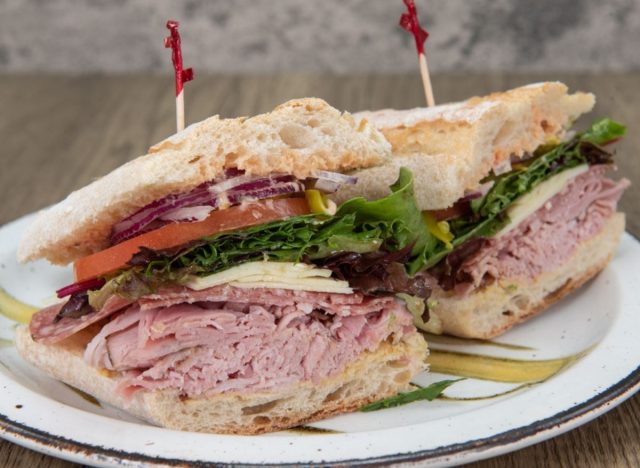
Who doesn't love a big sandwich? Garcia says to look for high-stacked sandwiches at a deli or sandwich shop, explaining, "If you like flavor, look for sandwiches that could potentially be stacked high and packed with flavor by including several ingredients. Size does matter when it comes to the portion size of a sandwich. Look for images and eat with your eyes first!"
The ingredients aren't high quality
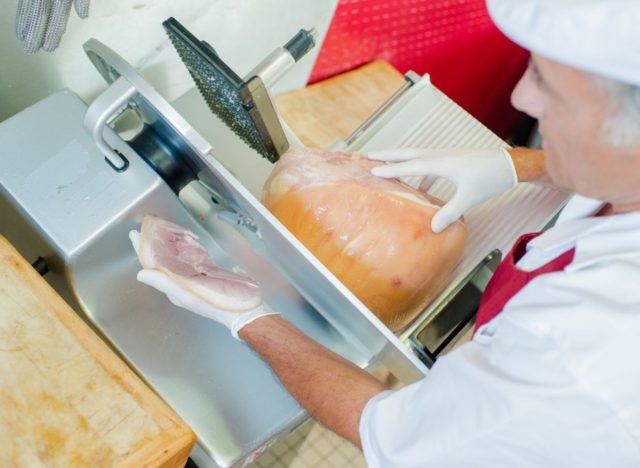
If you're trying to eat healthy, or just want to be mindful of what you put in your body, look for locally sourced meat, says chef and founder of Chef Ron, Ron Stewart. "It is always wise to look at the ingredients and quality of the food used in each item on the menu," says Stewart. "Many sandwich shops use low-quality processed deli meats, which can be high sodium and contain artificial flavors and preservatives—this means any sandwiches made with them won't taste as fresh or flavorful as they could be."
Stewart goes on to say, "Whenever possible, look for restaurants that source their meat from local farms where animals have been humanely raised without hormones or antibiotics. Not only is this better for human health, but also animal welfare."
They toast the bread (without you asking)
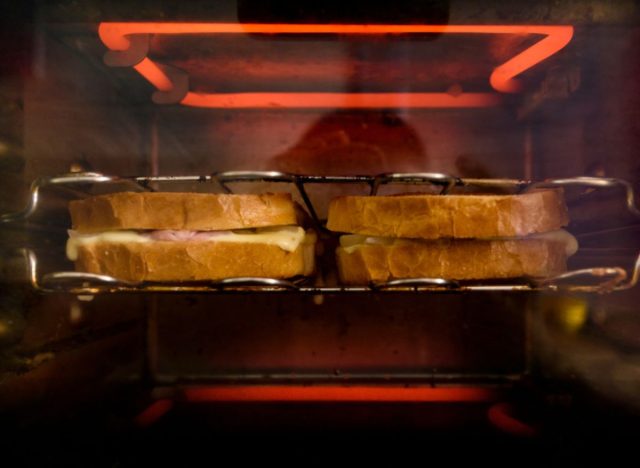
This is a sneaky way to make you think their bread is fresh, says Chuck Sillari, owner and chef of Mortadella Head in Massachusetts.
"When a sub shop automatically toasts their sub rolls, there's a good chance they're disguising a stale roll. It's probably yesterday's bread," explains Sillari. "This trick doesn't really harm anyone—and lots of people like a toasted roll. But if you're using a nice fresh roll from a local bakery, you don't mess with it."
They don't cook from scratch
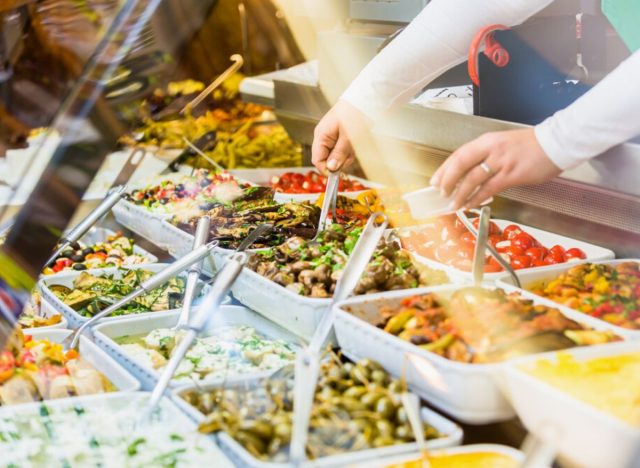
While many shops bring in some of their products for sale, they should be making items like their own egg salad and other specials, says Stewart. "Freshness is key when it comes to ensuring both taste and safety when eating out," he told us. "Look out for signs indicating that a restaurant prides itself in cooking everything from scratch and using locally sourced produce whenever available—like homemade pickles or daily-made sauces—these are all indications of excellent food hygiene standards being followed by staff members who care about offering great tasting sandwiches above all else!"
You can't smell food cooking
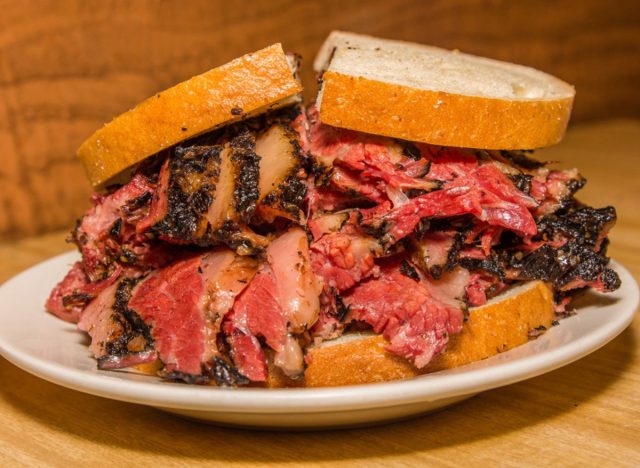
Speaking of cooking from scratch, Sillari says it's a bad sign if you can't smell the food cooking. "When I walk in I can actually smell real food cooking. It could be a pot of tomato sauce on the stove, meatballs baking in the oven, or onions frying up on the flat top," he explains. "Whatever it is, you need to smell something. It's a sign that the food is fresh. The scent of a sub shop will tell the whole story."
The meat is pre-sliced
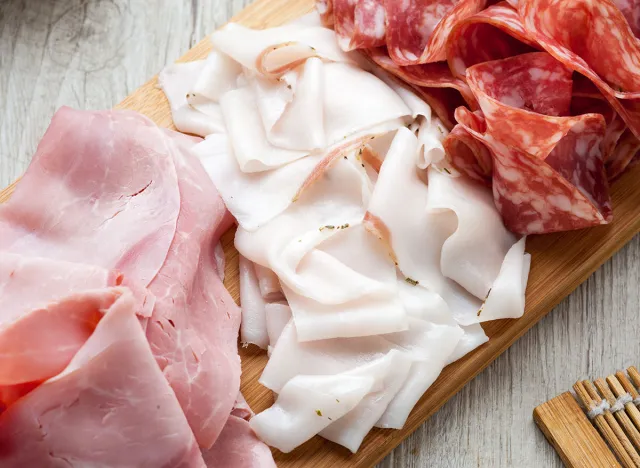
Piles of pre-cut meat is a bad sign, says Yampa Sandwich Company franchise co-owner David Pepin, who explains, "Guests should think twice if they see a menu with overly processed ingredients and if all the meats are pre-sliced (this is a sign the sandwich shop does not execute any prep)."
Sad looking veggies
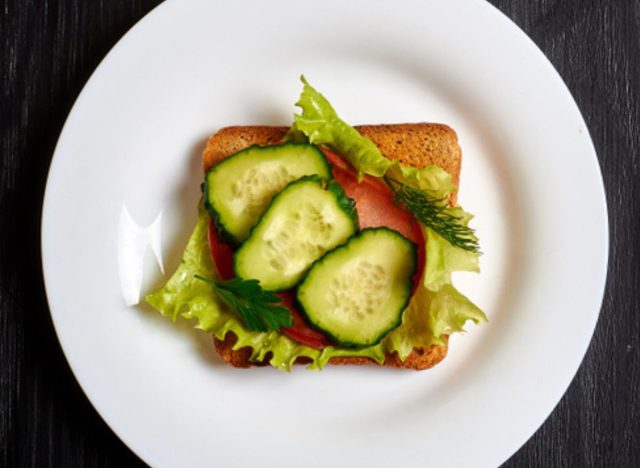
This should go without saying, but it's smart to eyeball the toppings if you can, says chef and founder of Foodlve, Amy Smith. "When the vegetables at a sandwich shop or deli look limp, sad, and not fresh, it's a tell that they have been sitting around for a while," says Smith. "You really don't want those in your sandwich."
The slicer isn't clean
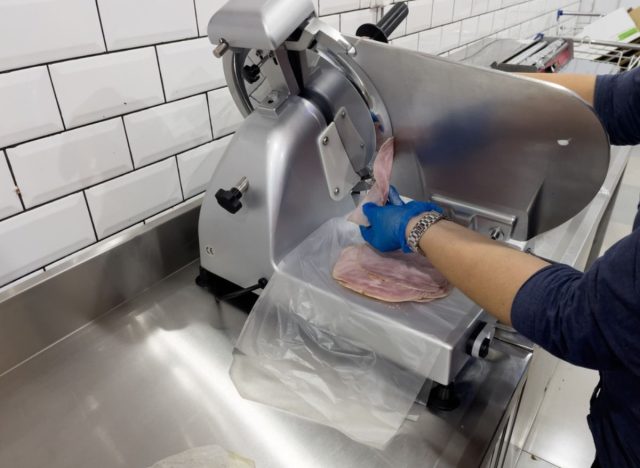
It's so important to keep the deli slicer clean, says Chef Jordan Quidachay of Kitchen Ambition. "For me, the number one red flag at a deli is if I ever see a dirty slicer. For me, that tells me there's little regard for cleanliness or at least consistency in keeping things clean," says Quidachay. "Considering deli meat is a highly volatile product when it comes to spoilage, cleanliness is the most important."









